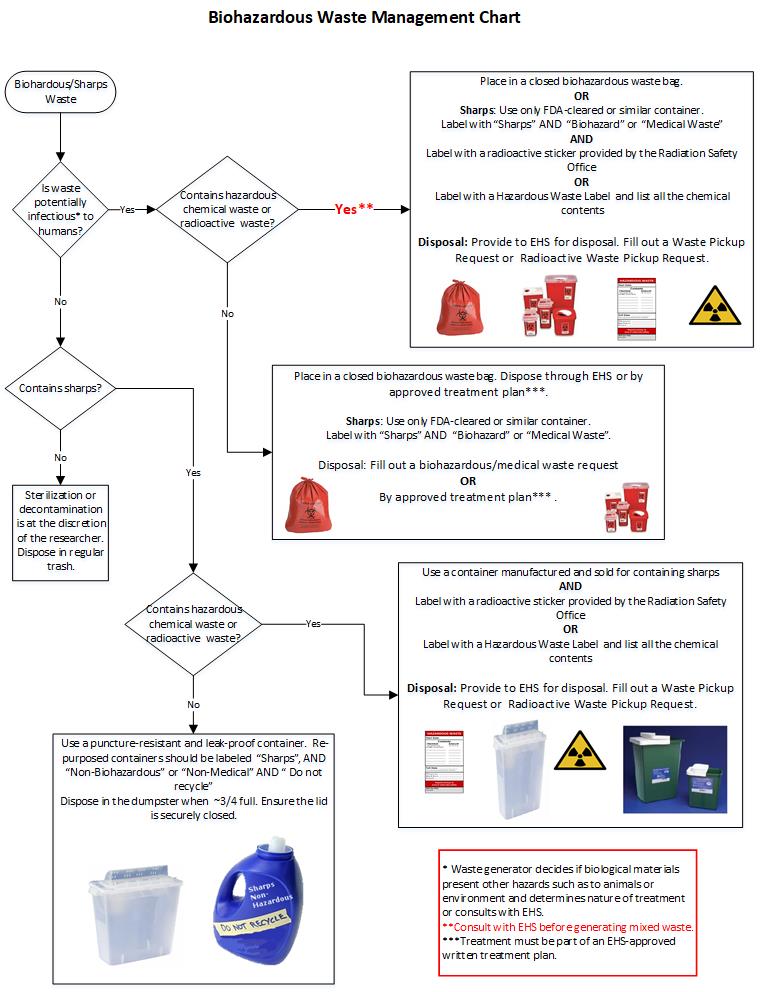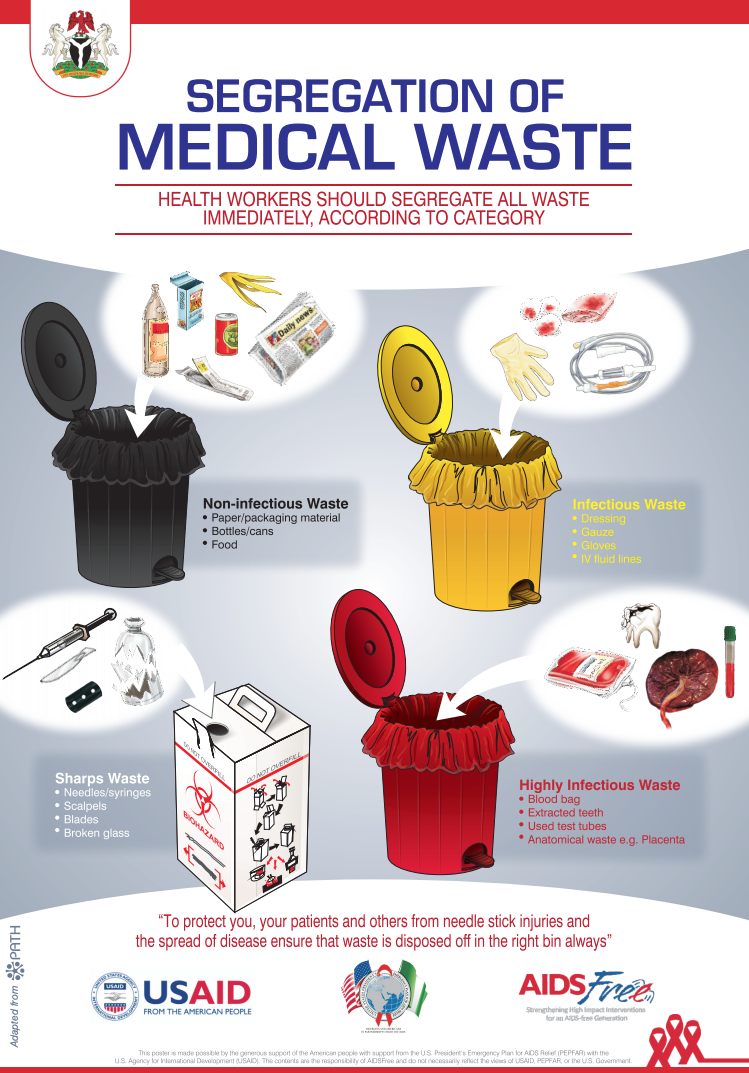Strategic Medical Waste Disposal Solutions: Promoting Safety And Security and Sustainability
Wiki Article
Guaranteeing Safe Handling and Disposal of Medical Waste
Making certain risk-free handling and disposal of clinical waste is of extremely important relevance in healthcare setups. Inappropriate monitoring of medical waste can present significant threats to the setting, public wellness, and medical care employees. In this introduction, we will certainly check out the significance of correct medical waste management, the dangers linked with incorrect handling and disposal, as well as the guidelines and techniques that can be applied to ensure its secure disposal.Significance of Appropriate Medical Waste Management
Appropriate medical waste management is of utmost value in making sure the security and wellness of medical care professionals, people, and the basic public. Medical waste refers to any type of waste created by medical care facilities throughout the medical diagnosis, therapy, or booster shot of people or pets. This waste can posture severe wellness dangers otherwise managed and taken care of properly.
Among the main reasons that correct clinical waste management is crucial is to avoid the spread of contagious illness. Clinical waste, such as made use of needles, polluted dressings, and biological materials, can lug dangerous pathogens. If not managed and taken care of properly, these virus can be transmitted to healthcare workers, clients, waste trainers, and even the public, bring about the prospective episode of conditions.
Furthermore, appropriate clinical waste administration assists shield the setting - medical waste removal service. Medical waste has harmful materials, consisting of chemicals, drugs, and contaminated substances. When not handled appropriately, these materials can pollute soil, water bodies, and the air, positioning a substantial threat to communities and public health
Furthermore, efficient medical waste administration makes sure conformity with international criteria and neighborhood laws. Federal governments and regulative bodies have actually established methods and guidelines to make certain the risk-free handling, storage, transport, and disposal of clinical waste. Complying with these laws is crucial to stay clear of lawful repercussions and maintain the reputation and integrity of medical care facilities.
Risks of Improper Handling and Disposal

If medical waste is not effectively disposed of,Individuals can also be revealed to these infectious diseases. If contaminated needles or other sharps are not disposed of in designated puncture-proof containers, they may unintentionally prick people, leading to possible infections. If medical waste is not segregated correctly, there is a risk of cross-contamination in between various kinds of waste, more raising the possibilities of disease transmission.
Improper disposal of clinical waste can additionally have detrimental effects on the setting and the public. If medical waste is not dealt with and thrown away correctly, it can infect water sources, soil, and air, bring about the spread of contaminants and diseases. This can have long-term consequences on ecological communities and public health and wellness.
Guidelines for Safe Handling of Medical Waste
Implementing efficient procedures for the secure handling of clinical waste is vital in making sure the protection of medical care specialists, individuals, and the general public. These guidelines are crucial in lessening the risks related to the handling and disposal of clinical waste, such as infections, injuries, and ecological pollution.Primarily, medical care facilities need to establish a detailed waste management plan that adheres to neighborhood, national, and global policies. This strategy should include clear guidelines on waste segregation, packaging, transport, storage, and labeling. It is crucial to separate various types of waste, such as sharps, contagious materials, pharmaceuticals, and non-hazardous waste, to avoid cross-contamination and advertise risk-free disposal.
In addition, healthcare workers have to receive complete training on appropriate waste handling strategies. They should be educated on the prospective risks of clinical waste, the appropriate usage of personal safety devices (PPE), and the appropriate treatments for taking care of, carrying, and throwing away different sorts of waste.
Additionally, medical care centers must routinely monitor and audit their waste monitoring methods to ensure conformity with standards. This includes performing normal evaluations, evaluating waste handling treatments, and offering feedback and training to personnel.
Efficient Approaches for Waste Disposal
To ensure the safe handling and disposal of clinical waste, it is necessary to utilize efficient strategies for waste disposal. Clinical waste can pose substantial threats to public health and the environment otherwise handled and disposed of correctly. Medical care facilities and waste monitoring companies should implement ideal strategies to mitigate these threats.It involves dividing different kinds of medical waste based on their qualities. Healthcare centers need to provide clear standards and training to personnel participants on how to set apart waste appropriately.

In addition, healthcare centers need to collaborate with licensed waste administration business to guarantee proper disposal of clinical waste. These business have the knowledge and equipment called for to safely dispose and deal with of medical waste in compliance with guidelines and finest techniques.
Training and Education And Learning for Healthcare Professionals
Medical care experts play a critical function in guaranteeing the secure handling and disposal of clinical waste with comprehensive training and education and learning. It is necessary for doctor to have a deep understanding of the potential threats connected with medical waste and the proper methods for its management. By obtaining appropriate training, medical care specialists can decrease the possible transmission of transmittable diseases, avoid environmental contamination, and protect both themselves and the public.
Additionally, training programs need to stress the usage of personal safety equipment (PPE) and proper hand health techniques when handling medical waste. medical waste removal service. Healthcare professionals must recognize exactly how to properly utilize and get rid of of PPE to safeguard themselves from prospective direct exposure to hazardous materials. They need to additionally be educated on the relevance of normal handwashing and the correct usage of hand sanitizers to lessen the spread of infectious illness
Continuing education and learning and regular updates on medical waste management techniques are essential for medical care experts. As regulations and guidelines evolve, it is crucial to maintain health care companies educated regarding any modifications in procedures and the original source finest practices. This will ensure that they stay current and keep a high standard of safety in managing and getting rid of of medical waste.
Verdict
In final thought, correct handling and disposal of clinical waste is essential to ensure the security of health care professionals, clients, and the environment. By sticking to these techniques, we can alleviate the potential dangers connected with medical waste.Medical waste refers to any waste generated by medical care facilities throughout the diagnosis, treatment, or immunization of people or animals. If medical waste is not set apart correctly, there is a risk of cross-contamination in between different types of waste, further enhancing the chances of disease transmission.
It is crucial to divide different types of waste, such as sharps, infectious materials, pharmaceuticals, and non-hazardous waste, to prevent cross-contamination and promote secure disposal. WasteX Medical Waste Disposal.
To guarantee the secure handling and disposal of clinical waste, it is important to use effective methods for waste disposal. In addition, healthcare facilities ought to establish a normal waste collection and transportation routine to prevent waste accumulation and decrease the danger of mishaps or contamination.
Report this wiki page